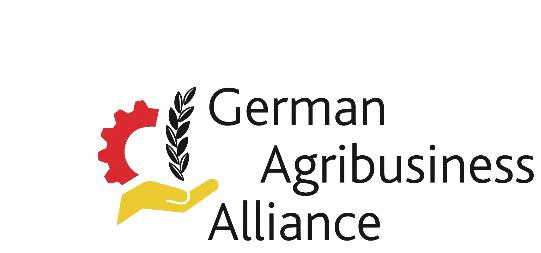 5 May 2020. The German Agribusiness Alliance (GAA) is a German business initiative of leading associations and companies in the agri-food sector. It serves as a platform to exchange information and expertise, and to pool economic interests in cooperation with transitioning, developing and emerging countries (partner countries) in the agri-food sector.
5 May 2020. The German Agribusiness Alliance (GAA) is a German business initiative of leading associations and companies in the agri-food sector. It serves as a platform to exchange information and expertise, and to pool economic interests in cooperation with transitioning, developing and emerging countries (partner countries) in the agri-food sector.German Agribusiness alliance organised a Webinar on : Making food systems resilient to Covid 19.
Speakers:
- Frank Nordmann, Co-Chair, GAA, Member of the Board, Afrika-Verein
- Christoph Kannengiesser, CEO, Afrika-Verein
- Dr. John Swinnen, Director General, International Food Policy Research Institute
"A study in Nigeria estimates the effects of Covid-19 will lead to a GDP reduction of 38 per cent during the five-week lockdown. The agriculture sector declined by 14 per cent while for example production declined by 50 per cent."
- Ulac Demirag, Country Director for Ethiopia, IFAD
"The food supply chain support provides in form of grands for post-harvest handling. IFAD provides liquidity through the Development Bank of Ethiopia and the EU is in the process of agreeing to join the program and provide debt relief." - Ron Hartman, Director Global Engagement, Partnership and Resource Mobilization, IFAD
"The IFAD has an ongoing program of around 16 billion USD which benefits around 110 million people. A “Rural Poor Stimulus Facility” helps small scaled farmers get access to production inputs, markets, liquidity and improving digital solutions and connectivity in rural areas." - Vanessa Adams, VP Strategic Partnerships, Alliance for a Green Revolution in Africa (AGRA)
"AGRA continues to track the investment opportunities in supply chains for the private sector. In West Africa AGRA has been working with Nestle YOUth to engage young people with agriculture as there is also a huge potential for digital solutions."
- Cornelia Berns, Head of the Directorate “International Cooperation & World Food Affairs”, Federal Ministry of Food and Agriculture (BMEL)
"The BMEL runs training centers to support agricultural entrepreneurship in Ethiopia, Zambia and Morocco. Due to the current situation the training centers switched very quickly to e-learning tools and it works quite well. It is even expected that the online tools increase the outreach of these project. A new specialist institute for animal health is being established to have a holistic view about human and animal health. The BMEL is committed to ensure that food security is part of the EUs international strategy, and will include the topic in the planned EU AU Summit in October 2020." - Sebastian Lesch, Head of Unit – International agricultural policy, agriculture, innovation, Federal Ministry for Economic Cooperation and Development (BMZ)
"The 'Corona Soforthilfe' Program of the BMZ has repurposed 1 billion from its own household and an additional 2 billion € to combat the corona crisis in partner countries. BMZ has repurposed 200 Mio. Euros of already existing funds and tries to get extra 600 Mio. Euros to support the SDG2 with three perspectives: (a) short-term the BMZ is looking at the acute hunger crisis, (b) medium-term to reduce the impact on future crises and (c) long-term to build up resilience against future disruptions." - Varun Vats, Global Lead, Public Policy and Partnerships, Syngenta
"The Actions taken by Syngenta includes: (a) Give farmers access to solutions which make crops more efficient; (b) Help framers stay safe: provide face masks, and sanitizers, and online workshops (c) Implement strict hygiene measures for own workers (d) Set up a global supply chain platform: provide data and analysis (e) Engage with partners for exchange of ideas, namely: WEF, EBCSD, FAO"
- Anne Willenburg, Deputy Head of Water Resources Management and Irrigation, AHT Group AG
"The small scale irrigation project in Mali which are funded by many international institutions like BMZ, Canada, EU and USAID has an irrigation infrastructure component where either new micro dams are build or infrastructure is rehabilitated. Regarding Covid-19 measures were taken within the existing budget."
- Lisa Heinemann, Partnerships, Global GAP
The current crisis is as a stimulus to digitalization. As an example Global GAP shifted all its face to face trainings to digital solutions which reaches even more people due to lower prices. Global GAP produced training videos, first for the German market and now Global GAP is looking which other markets can be served. The purpose of these videos iss to bridge the gap between supply and demand of agricultural workers, and remote auditing for certification." - Moderator: Anna Sophia Rainer, Manager Africa, Germans Agribusiness Alliance
Upcoming events:
26th of May: 01:00pm – 02:30pm: 2. Working Group
Food and Agriculture: Information from the ground/ Current needs of our African
partners
11th of June: 01:00pm – 02:30pm: 3.Working Group
Food and Agriculture: Finance

No comments:
Post a Comment